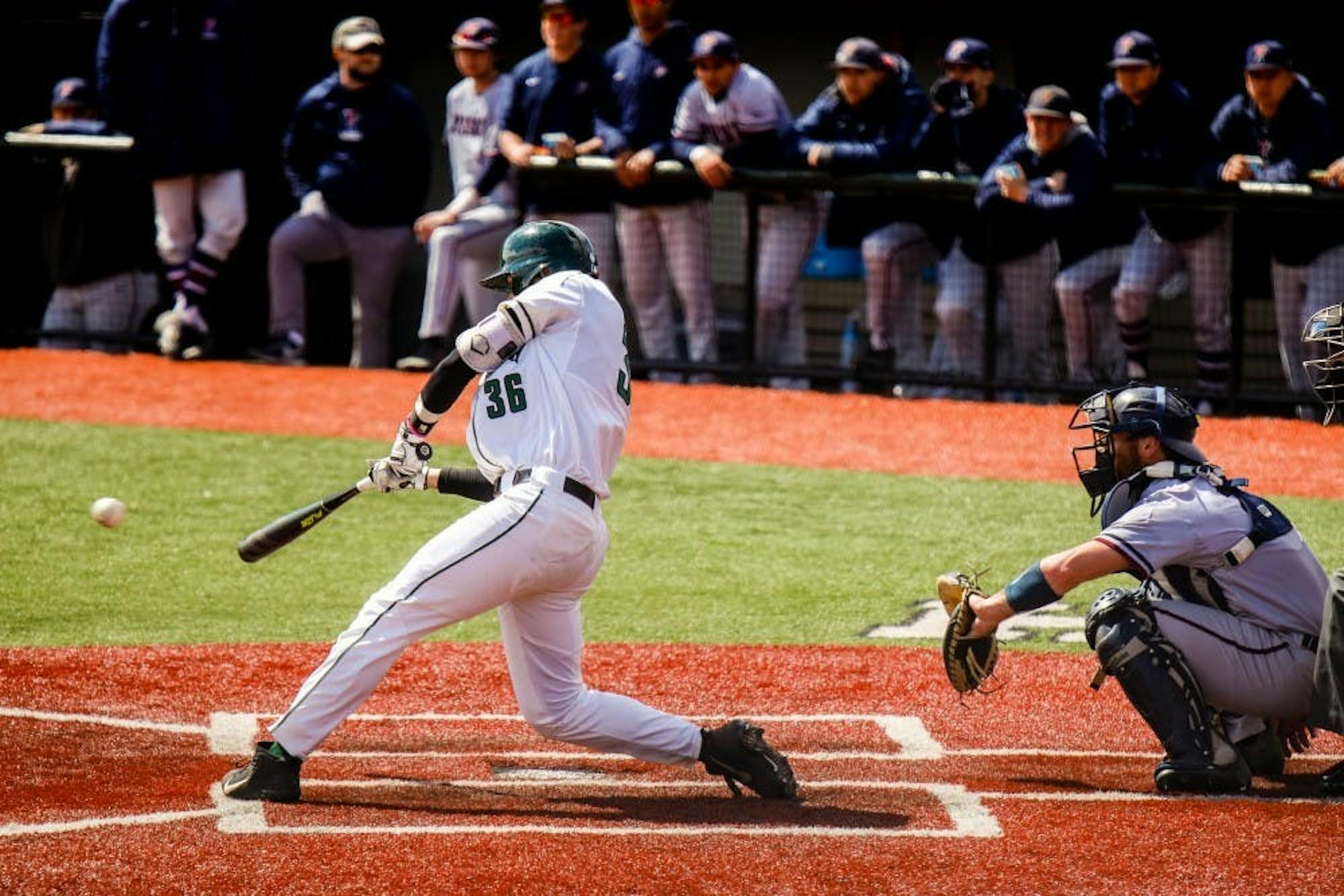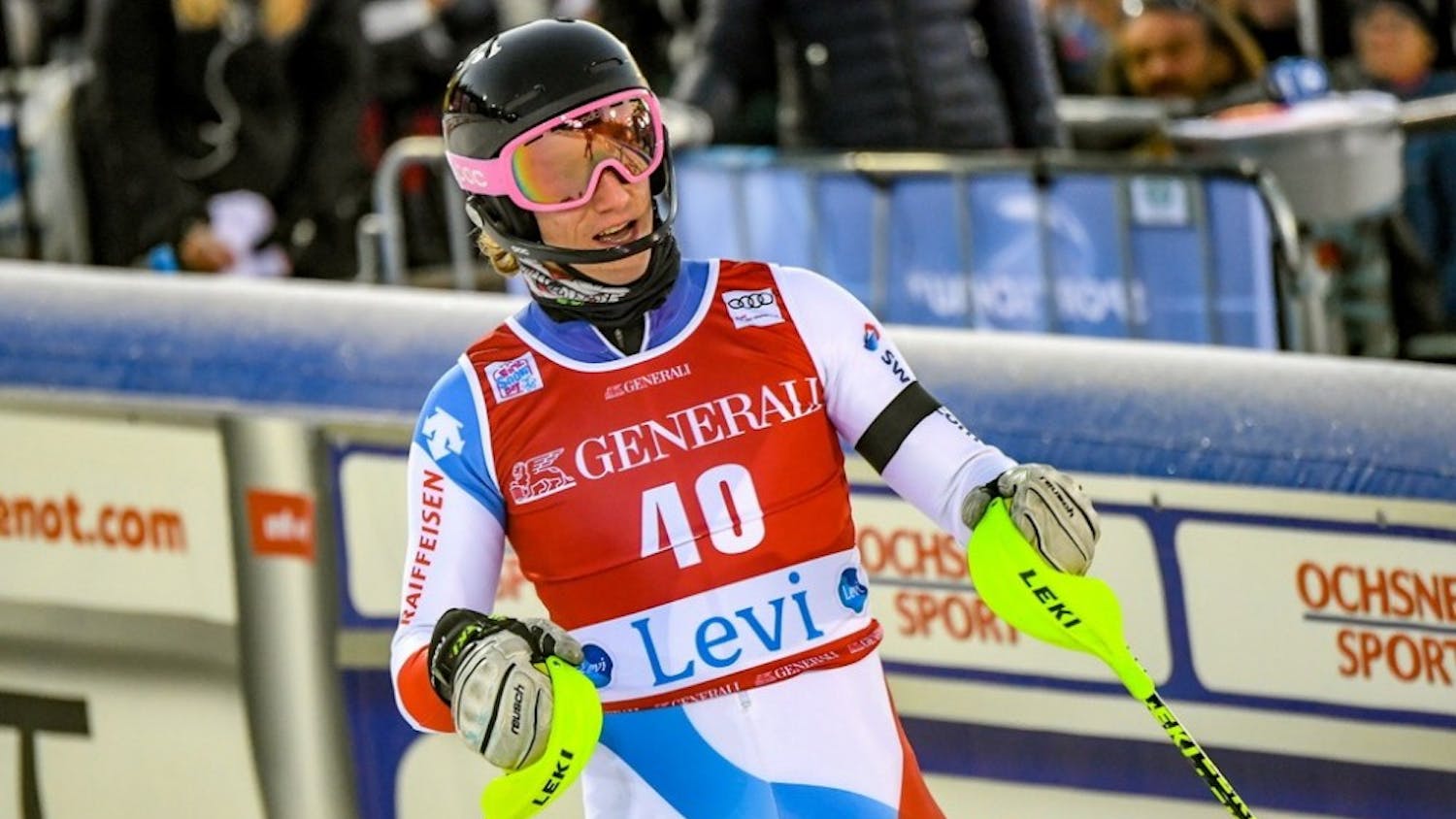If the uncharacteristic warmth this past weekend was not enough of a reminder that spring is almost here, perhaps the return of baseball season will be.
Though the 50-degree days made for some surprisingly good baseball weather in Hanover, the Big Green (2-2) opened up its season with a four-game slate at the Snowbird Classic in much-warmer Port Charlotte, FL.
The team is gearing up for what should be a rebound season in 2020. Last year, Dartmouth finished the year 15-26, including an 8-13 record in Ivy League play, the school’s first sub-.500 Ivy season since 2007. After that 2007 season, the team quickly put its subpar finish in the rearview, as the Big Green made eight consecutive Ivy League championship series appearances, a stretch that included a pair of NCAA Tournament appearances in 2009 and 2010.
“Every year is different,” said head coach Bob Whalen. “You never start or begin where you left off. When you get to the next year, you’re 0-0 like everybody else. And you have to build the foundation of the house all over again. I liked my team last year — a lot of good kids, a lot of good players. We had some things happen that are really out of your control. This is a new year.”
In 2019, it was the pitching that kept the Big Green fighting from behind. Though the Ivy League does have a higher run-scoring environment than most leagues, Dartmouth’s 7.04 team ERA put the team last in the conference. Moreover, the Big Green had the second-lowest strikeout rate at 13.4 percent and the second-lowest strikeout-minus-walk rate at 4.8 percent. A lack of dominant pitching led to some wacky conference games, none weirder than a 21-inning, 21-15 loss versus the University of Pennsylvania, the longest game in Ivy League history and tied for the eighth-longest in the history of Division I baseball.
Perhaps Dartmouth’s pitching woes were at least in part due to relative inexperience on its staff. Last year, two of the team’s most-utilized starting pitchers were freshmen, something that had not happened since 2009, when rookies Kyle Hendricks ’12 and Cole Sulser ’12 — both of whom pitched in Major League Baseball last season — made 11 and six starts, respectively. Both regular starters, Justin Murray ’22 and Nathan Skinner ’22, have already returned to the bump in 2020.
“It didn’t go great last year, but I think that experience really helps us, knowing how to pitch in the Ivy League,” Murray said. “We can only go up from here. Getting thrown into the fire as freshmen may be tough for one season, but that’s how you grow.”
Murray turned in the finest performance of his college career on Sunday against the University of Omaha: seven innings, three hits, no runs, two walks and six strikeouts. As a result of this performance, he was named the Ivy League Pitcher of the Week.
“You always are excited to be recognized for what you’ve done,” Murray said. “My biggest thing is — it’s cool to get it now, but you want to get it in the Ivy weekends when it really means something. It’s definitely a great place to start, but you don’t want it to be your last.”
In its contribution to the high-scoring environment of the Ivy League, the Big Green lineup ranked in the middle-of-the-pack in most important offensive categories last year. As a team, Dartmouth hit .263/.354/.396 last year, with its .750 on-base plus slugging percentage (OPS) ranking fourth in the conference. The offense was buoyed by raw power; the team’s isolated power (ISO) was .133, ranking third.
“With the way that our philosophy has shifted as an offense from — my freshman year, for instance, and my sophomore year, a little bit, we were more of a small ball team,” said co-captain Blake Crossing ’20. “As I’ve gotten older, we have put more of a premium on extra-base hits, on guys with power — even mechanically — changing guys’ swings and having an approach of, ‘Let’s hit some balls far,’ as opposed to hitting guys over and getting guys in.”
Crossing cited the “launch angle trend” in the MLB as to why the Big Green has shifted its offensive approach over his career.
“It’s really hard, as a player, to watch all of these [Major League] guys focus on [launch angle] and have all of this success and then go, ‘Oh, I still want to hit groundballs to the opposite side,” he said.
Even with a more power-centric approach, Dartmouth’s offense may be something of a question mark going into this season. By OPS, three of Dartmouth’s four best hitters in 2019 — Steffen Torgersen ’19, Matt Feinstein ’19 and Nate Ostmo ’19 — have all graduated. That leaves Ubaldo Lopez ’21 to carry the charge; he posted an impressive .254/.384/.525 slash line as a sophomore last year, leading the Big Green in home runs with seven. Perhaps more importantly, he displayed impressive plate discipline, ranking third out of the eight players with 100 plate appearances in walk rate.
“If you’re going to walk me, I’m going to take first base,” Lopez said. “Granted, would I rather get a double and get a good pitch to hit? Yes. But, I see a walk and a single as the same thing, so I’m fine taking them.”
This season, Lopez has come out of the gate right where he left off, starting the year 5-13 at the plate with three doubles. Like with Murray, he already has received some recognition for his hot start; he was named the Ivy League Player of the Week on Monday.
“It’s really gratifying, especially just being put on the map a little bit,” Lopez said. “You’re like, ‘Wow.’ You don’t [want to] get complacent because you’re actually being compared to the rest of the country.”
All told, the Big Green should be able to rebound from what was a disappointing 2019 campaign. Most prognosticators have Dartmouth finishing somewhere in the middle of the conference, with D1Baseball.com expecting a fourth-place finish, the conference media predicting fifth and Baseball America projecting sixth. In any of these scenarios, the Big Green would be held out of the Ivy League Championship Series, a mid-May best-of-three held between the top-two conference finishers to determine which team will earn the automatic bid to the NCAA Tournament.
“I don’t pay any attention to [the preseason polls],” Whalen said. “I’ve never understood coaches who are happy — the prediction is for their team to finish in the middle or the lower part of the league, and then they finish one or two places higher — and feel like they’ve exceeded expectations. We’re not playing for second place. We play to win.”
Conference play for the Big Green begins on March 21, with a three-game set at Penn. Dartmouth does not have an Ivy League home series until April 4 versus Princeton University, but the team does have two midweek nonconference contests at home on March 25 (Quinnipiac University) and on April 1 (College of the Holy Cross). Dartmouth is used to starting its season on the road, as the team cannot play home games until the snow thaws in Hanover.
“I never afford myself the luxury of feeling sorry for myself because, if I do, the players will,” Whalen said. “You’re going to play in cold weather. [Other teams don’t] care about your problems. They’re just glad that you have them, and they don’t.”
For now, Dartmouth continues its road nonconference schedule this weekend at the University of Virginia, where the Big Green and the Cavaliers will face off for a three-game series in Charlottesville.




